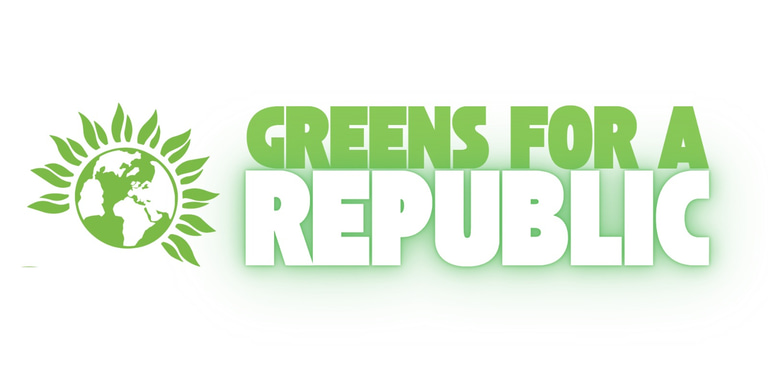The President Blair Jump-Scare: Why Monarchists Use Myths To Undermine Republicanism
Why do monarchists often use the “President Trump / Farage / Blair / Johnson/ Bogeyman” scare-scenario when arguing against an Irish-style republic?
11/23/20252 min read
This is a very common rhetorical tactic in UK monarchy debates, and it has clear strategic reasons behind it.
1. It reframes the debate away from the actual model being proposed
British republicans overwhelmingly favour:
-an Irish-style ceremonial president,
-elected by the public,
-with very limited political powers,
-non-partisan in practice.
Monarchists often ignore this and instead claim that abolishing the monarchy means:
-a US-style executive president with political powers.
-Possibly held by a highly divisive figure
This is effective because it changes the subject from what republicans actually want.
It’s a classic form of straw-man argument.
2. It exploits fear rather than facts
The thought of:
“President Boris Johnson”
“President Nigel Farage”
“President Tony Blair”
“President Trump”
triggers a strong reaction in many voters.
It’s used because fear is one of the most powerful political tools.
By suggesting that abolishing the monarchy leads to an American-style chaos presidency, monarchists tap into anxieties about:
- populism
- culture wars
- political instability
- extremism
- gridlock
It’s far easier to win an argument by making people afraid than by debating constitutional models.
3. It hides the fact that most republics prevent this easily
In practice, ceremonial presidents in Europe are almost never extremists or controversial politicians, because of:
-strict eligibility rules
- confirmation by parliament
- public preference for neutral figures
- non-political, non-executive roles
- widespread civic norms against partisan presidents
Ireland, Germany, Austria, and Portugal consistently elect:
-experienced, respected moderates
-often independents
-often former judges, diplomats, or senior parliamentarians
-people with reputations for integrity
So the “Farage-as-president” scenario simply doesn’t match how parliamentary republics behave.
4. It’s emotionally powerful and politically useful
The monarchy has a strong emotional component for many supporters.
Losing it feels like a radical break with identity and tradition.
The idea of a “dangerous” or “chaotic” president helps monarchists position themselves as:
-defenders of stability
-defenders of national identity
-protectors against populism
This taps into the psychology of loss aversion:
People fear losing what they have more than they value potential gains.
5. Media narratives amplify it
UK media—especially tabloids—often frame republicanism as:
-radical
-un-British
-risky
The “President Farage” trope fits this agenda perfectly.
It’s simple, sensational, and scary.
6. Monarchists know the real republican models are popular when explained
Polling shows:
- When you ask “Do you want an elected president as head of state?” = People are hesitant.
- But when you describe an Irish-style ceremonial head of state with very limited powers, support rises sharply.
So monarchists avoid discussing the realistic model because it undermines their argument.
The US model is unpopular in the UK; the Irish model is far less scary.
Therefore, they deliberately focus on the unpopular one.
7. It’s strategic, not conspiratorial
Not all monarchists do this intentionally.
Some genuinely believe “president = political” because that’s the model they know from TV and global politics.
But politically organised monarchist groups absolutely use this argument strategically because:
- It is effective
- It is simple
- It creates doubt
- It reframes the conversation
And most importantly:
It turns a calm, practical constitutional reform into a frightening “gamble.”
Greens For A Republic are working hard to counter such myths.
Feeling inspired? Join us today!
